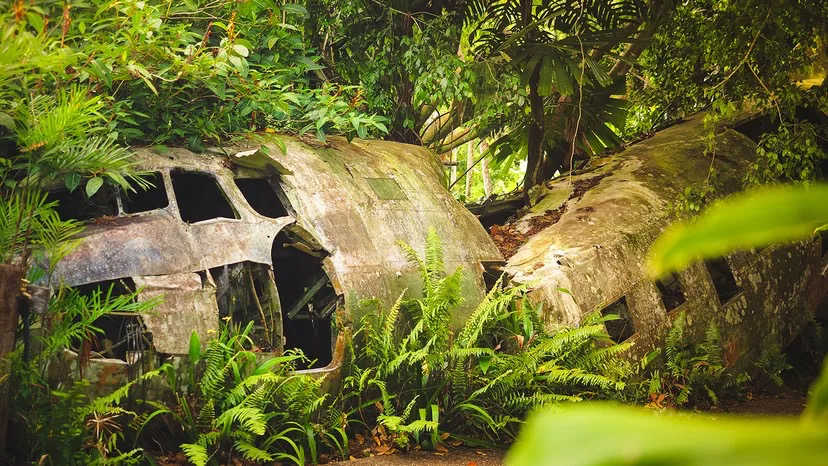
The Survival Mindset, A Skill We Must Master
Let’s Get Real About Survival
Whether you're deep in the woods or just navigating the chaos of modern life, one truth holds steady: your mindset is your most powerful survival tool.
Sure, gear matters — we all love our ferro rods, field knives, and EDC kits. But none of it means a thing if your brain short-circuits when the pressure hits.
That brings us to today’s key question:
🧠 A survival mindset is comprised of which three components?
The answer: Mental Resilience, Practical Knowledge, and Situational Awareness.
These three pillars form the foundation of every survival success story — whether it's in the wilderness or in everyday challenges like job loss, natural disaster, or a medical emergency.
Let’s break it all down in a way that makes sense, sticks with you, and gives you something you can start training today.
Mental Resilience:

Your Inner Fire
When the chips are down, it’s not the strongest or most skilled person who makes it out alive — it’s the one who refuses to quit.
🔥 What is Mental Resilience?
Mental resilience is your ability to stay calm, focused, and motivated even when things go sideways. It’s the grit that pushes you forward when panic wants to freeze you in place.
Core Aspects of Mental Resilience:
-
Positive Attitude
Hope isn’t a weakness — it’s a weapon. Believing you can make it gives your mind and body permission to keep fighting. -
Stress Management
Fear is natural. But letting fear turn into panic? That’s deadly. Resilient people know how to breathe, slow down, and stay in control. -
Adaptability
Survival situations change fast. Plans fall apart. Conditions shift. Your ability to roll with it is everything.
🧠 Train it now: Cold showers, fasting, physical challenges — lean into discomfort. Your brain learns to survive through exposure.
Knowledge and Skills:

The Tools in Your Head
Let’s face it — gear breaks, gets lost, or runs out. But knowledge? That rides with you everywhere.
🪓 What Is Practical Knowledge?
It’s the combination of skills, field experience, and problem-solving ability that allows you to take action when you need it most.
This is your internal survival kit.
Key Elements of Practical Survival Knowledge:
-
Core Bushcraft Skills
-
Building a shelter with minimal gear
-
Starting a fire in rain or snow
-
Finding and purifying water
-
Treating basic wounds
-
Navigating without electronics
-
-
Critical Thinking
-
Recognizing what matters now and what can wait
-
Deciding whether to stay put or move
-
Improvising solutions on the fly
-
-
Hands-On Familiarity
Watching a video on fire-starting isn't the same as doing it at 3 a.m. in wet socks. Practice builds confidence.
🛠️ Train it now: Take your kit into the woods and run drills. Use only what’s on your person. Time yourself. Fail safely, then learn.
Situational Awareness:

The Eyes in the Back of Your Head
Ever walk into a room and immediately feel something’s off? That’s situational awareness — and it might just save your life one day.
👀 What is Situational Awareness?
It’s the skill of constantly reading your environment, picking up on subtle cues, and planning ahead based on what you see and sense.
In a survival situation, this isn’t optional. It’s how you see danger before it sees you.
What It Involves:
-
Environmental Scanning
-
Is that a safe place to shelter?
-
Is the water upstream or downstream from contamination?
-
Are those clouds signaling a storm?
-
-
Threat Recognition
-
Animal tracks, strange smells, or sudden silence in the woods?
-
Aggressive behavior in a crowded place?
-
Cracks in a structure after an earthquake?
-
-
Contingency Planning
-
What’s your backup if your primary route fails?
-
How will you signal for help?
-
Who do you trust in a group setting?
-
🔭 Train it now: Play “what if” games while you drive, hike, or shop. Where’s the exit? What’s the wind direction? How many ways out?
Physical Preparedness:

While the three main components answer the question, “a survival mindset is comprised of which three components,” we’d be lying if we didn’t also mention these two power-ups:
💪 Physical Readiness
You don’t need to be an athlete, but you do need to be able to:
-
Walk long distances with a pack
-
Climb or crawl if needed
-
Withstand cold, hunger, or fatigue
Fitness is often overlooked in prepping — don’t be that guy with all the gear but no lungs.
💬 Emotional Intelligence
In group scenarios, your ability to read the room, de-escalate tension, and support morale is vital.
Strong teams survive longer — and strong teams need level-headed, emotionally aware people.

Why This Matters in Everyday Life, Too
Here’s the deal: survival isn’t just about hurricanes or getting lost in the woods. These same skills apply to:
-
A car accident
-
Losing your job
-
Divorce or death in the family
-
Financial emergencies
-
Workplace chaos
Having a survival mindset doesn’t just keep you alive — it helps you live better.
Commitment and Determination:

How to Build a Survival Mindset (Starting Today)
Want to start cultivating your own bulletproof survival mindset? Here’s a 5-part plan:
1. Train Weekly
Practice shelter-building, fire-starting, land nav, and trauma care. Rotate skills. Stay sharp.
2. Stress Your System (Safely)
Get uncomfortable on purpose — cold, heat, hunger, darkness, noise. Learn what rattles you, and train through it.
3. Reflect and Journal
After every drill, write what worked, what didn’t, and how you responded emotionally. Track growth.
4. Work Out Like It’s Life or Death
Build strength and cardio endurance. You’re not training for beach season — you’re training for crisis.
5. Surround Yourself With Tough People
Mindset is contagious. Join a bushcraft meetup, prepper group, or online survival community.
Final Thoughts: Build the Mindset That Builds Survivors
Let’s circle back to the key question:
A survival mindset is comprised of which three components?
Here’s your answer — and your roadmap:
-
Mental Resilience — the fire in your brain
-
Practical Knowledge — the tools in your head
-
Situational Awareness — the radar in your soul
Master these three, and no gear failure, weather event, or chaotic day at the office can catch you completely off guard.
Start building it today. And remember:
It’s not if the storm hits — it’s when. Be the one who’s ready.
🛒 Need tools to match your mindset? Check out our Bushcraft Fire Starters, Survival Kits, and Field-Tested Gear.

